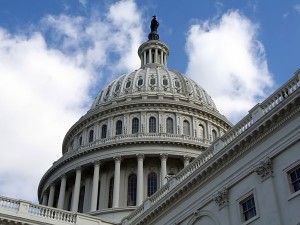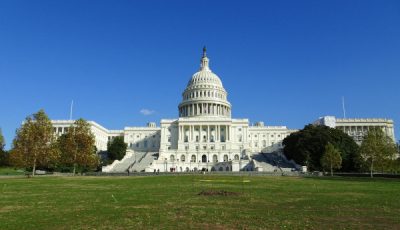Coming Soon: Federal Revenge Porn Legislation?
 WASHINGTON – With new laws targeting ‘revenge porn’ now on the books in half the states in the U.S., it’s no surprise to hear there’s talk of Congress passing federal legislation to address the same issue.
WASHINGTON – With new laws targeting ‘revenge porn’ now on the books in half the states in the U.S., it’s no surprise to hear there’s talk of Congress passing federal legislation to address the same issue.
The real question is: Will Congress repeat the mistakes of states like Arizona and compose an overbroad statute which is vulnerable to challenge under the First Amendment, or can it tailor a response which stays within the contours of free speech jurisprudence while still offering a meaningful disincentive to engaging in acts of revenge porn?
If we can take them at their word (always dangerous when it comes to members of Congress, obviously), the bill’s authors and proponents are mindful of constitutional concerns and have proactively taken steps to assure their legislation doesn’t cross the line with respect to the First Amendment.
“The legislation has been vetted by numerous constitutional scholars, and we have taken their recommendations and incorporated it into the draft of the bill so that it does follow established privacy protections without infringing on First Amendment rights to free speech,” said Rep. Jackie Speier (D-Calif.), who co-authored the bill with a Republican colleague (who has not been publicly named).
This sounds promising – but it also sounds like something we’ve heard before about new bills, not always supported by the reality of the eventual bill’s statutory language. After all, as a practical matter, aides, assistants and consultants always advise Congress on the language of the bills they craft, but as the history of the Child Online Protection Act demonstrates, the end result still often doesn’t fly with the courts.
As Matt Zimmerman, until recently a senior staff attorney at the Electronic Frontier Foundation, noted when the subject of a federal revenge porn statute came up late last year, “almost inevitably, statutes that try to do this type of thing overreach.”
Of particular concern to Zimmerman is the notion of the eventual federal law providing a means to hold liable ISPs and other “intermediaries” for revenge porn depictions promulgated via their networks and sites.
“Going after intermediaries is a really bad idea,” Zimmerman said. “The entire speech ecosystem ends up suffering because those service providers (would) decide what people can and cannot post, even if it isn’t illegal.”
While Speier and other anti-revenge porn activists have previously made statements suggesting they might attempt to undermine the protections afforded to ISPs under Section 230 of the Communications Decency Act, an aide to Speier said there’s no intent to touch or alter Section 230 immunity.
“If you’re protected under (section) 230, then even if you have this content on your website, you are not criminally liable unless you knowingly promote it
Lee Rowland, a senior staff attorney with the ACLU, appears to be taking a “wait and see” approach to the language of the new bill, but he sure doesn’t sound optimistic about the prospect of the new law being particularly constitutional.
“There really isn’t a precedent for criminalizing the sharing of an otherwise lawful image that you’ve obtained lawfully,” Rowland said. “Our take at the ACLU is that the more a law focuses on the intentional and knowing invasion of privacy, the more likely it is to pass constitutional muster.”
At the end of the day, if Speier’s bill goes steps too far into regulation of expression presumably protected under the First Amendment, it won’t do a lick of good for the victims of revenge porn the law seeks to aide, for a very simple and straightforward reason.
As Rowland noted: “A broad law offers no one protection if it’s struck down by the courts.”
Wherever one stands on the question of the proper scope of the First Amendment’s protections, it’s hard to argue knowingly and willfully humiliating someone through revenge porn fits within those protections, or should fit within them, any more than libel, slander, defamation or harassment fit within those protections (which they decidedly do not, in case you’re unsure).
The bottom line is revenge porn is a shitty thing to do, and while I’m not sure criminalizing it (as opposed to making a lot it easier for victims to sue offenders in civil court) is a good idea, if we’re going to go down that road, we should at least do it right – meaning within the framework of the Constitution and existing First Amendment-related precedent.
Along those lines, here’s hoping the experts and scholars advising Speier and her colleagues are good at what they do and offer the authors of the bill solid and sound advice. Assuming they do, let’s further hope Speier and company actually listen to them.
After all, to put a spin on an old cliché, a law professor can lead Congress right down to the shores of the great Constitutional wisdom waterhole, but it’s still up to the individual members to bend over and take a sip.













